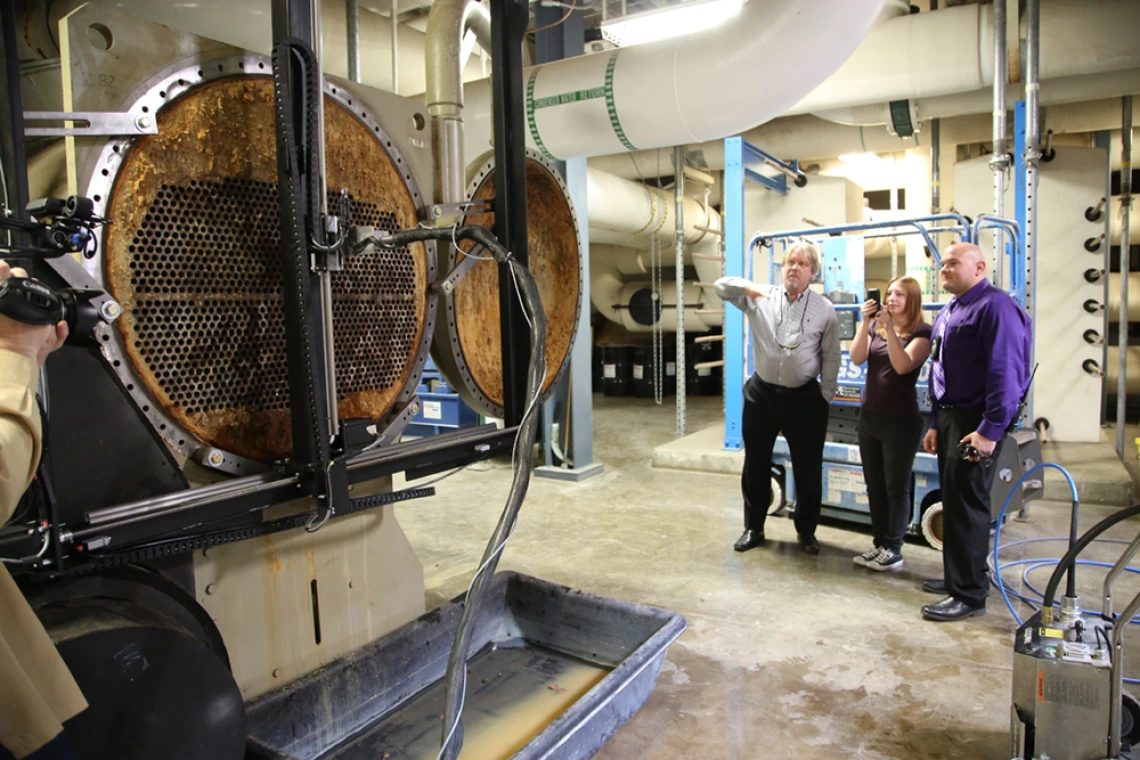Late UA Staffer's Invention Prototype Built and Tested

You never know where a great idea will bloom.
The late Alan Wall, who served as a senior staff technician for the University of Arizona's Facilities Management, had an idea for an automated machine that would clean chillers — the large heat exchangers with thousands of small, very long tubes that are used to cool air in large buildings. He developed the idea with co-inventor Dan McCrady, who was his manager at the time.
Wall was not a UA scientist, researcher, inventor or teacher by trade. He worked with the University's maintenance team. Yet his idea resulted in "a great invention," said Robert Sleeper, licensing manager for the UA College of Engineering.
"It just goes to show that this kind of innovation can happen anywhere at the University," Sleeper said. "And if it's a good idea, it will always make sense to commercialize it."
Wall envisioned a machine that would enable the chillers to be cleaned with minimal operator physical effort or supervision.
Normally, it takes one person eight hours to manually clean a typical chiller. The UA has 24 chillers, each needing to be cleaned once a year.
"It does a better and more consistent job and, more importantly, it saves on the financial cost and physical toll of doing that job by hand," Sleeper said.
Wall’s invention — a metal frame with a laser-guided robotic brush — potentially would save the UA tens of thousands of dollars in cleaning costs annually. It also would also be a product to offer the market if it were to be patented and commercialized.
With his supervisor, Mark St. Onge, assistant director of Facilities Management, Wall disclosed the idea in 2014 to Tech Launch Arizona, the UA office that commercializes the institution's inventions.
Wall died unexpectedly in August 2014, just two months after disclosing the idea to TLA, and did not live to see his invention at work.
TLA continued to work to patent the invention and engaged Aztera, a Tucson-based technology development firm, to build and test the prototype.
"With the help of Facilities Management and Tech Launch Arizona, we decided we wanted to get his great idea out in the world," Sleeper said.
On March 29, the Aztera prototype was successfully tested for the first time. TLA is in the early stages of commercializing the invention and has identified several companies that may be interested in licensing the technology. If the invention is successfully commercialized, Wall's heirs will receive his portion of the royalties.
Wall's children, Joseph, Alex and Mariah Wall, were among the first to see their father's work come to life.
"I remember when he was talking about it for the first time, and was making PowerPoints about it, and was really excited about it," recalled Mariah Wall. "It's just so weird seeing it in person, and also really sad because he's not here to see it with me."
Bonus video: Check out this time-lapse video of the complete prototype install and demo.

